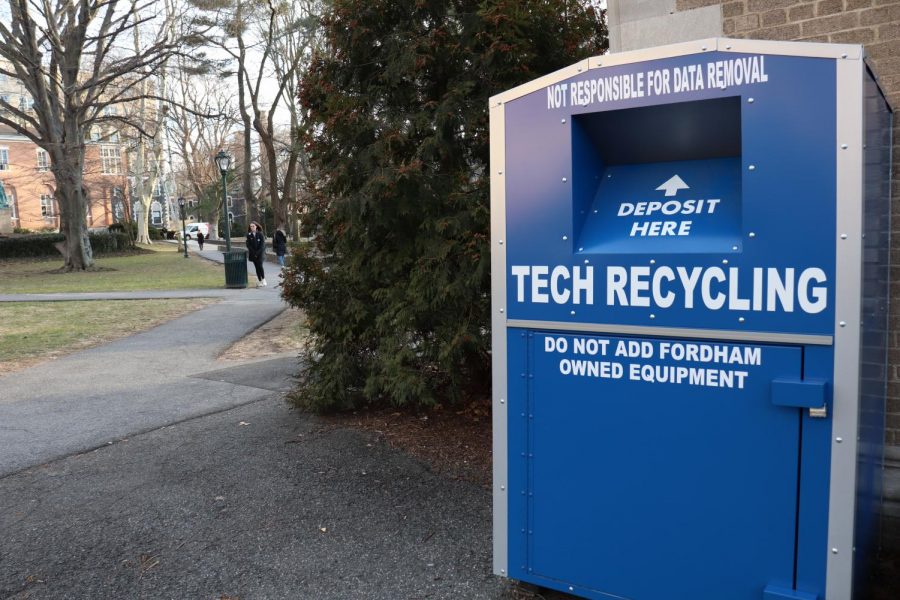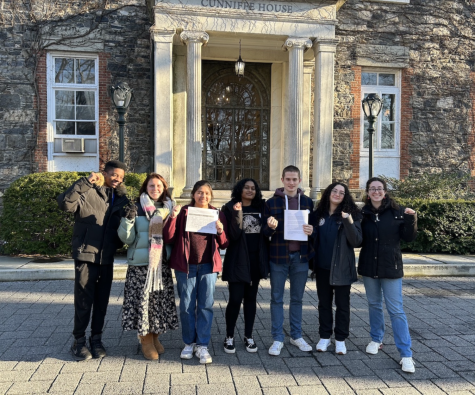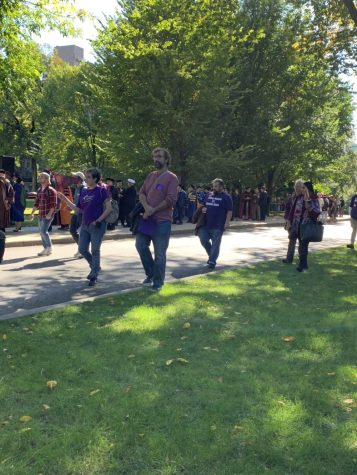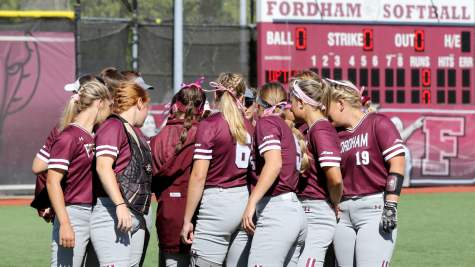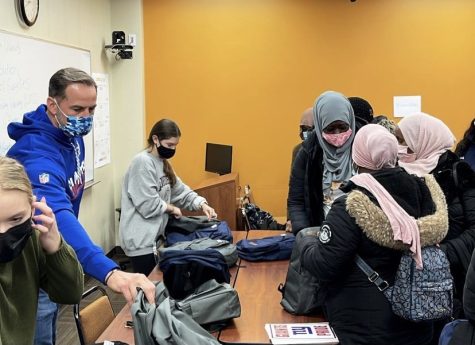Fordham IT Installs Electronics Recycling Bins On Campus
By Sarah Huffman
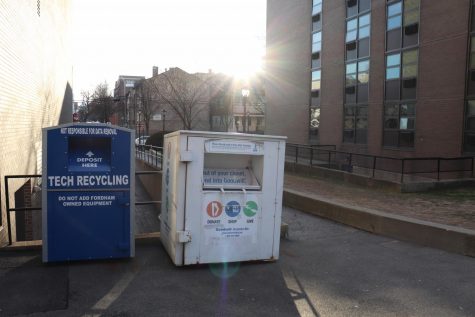
Two electronics recycling bins have been installed on Fordham’s campus: one by John Mulcahy Hall (JMH), next to the used clothes bin and one on the east side of Martyrs’ Court, behind Cunniffe House. This project was completed through Fordham IT.
According to Jim Castillo, the Computer Acquisitions Manager within Fordham IT, anything computer related (with circuit boards) can be recycled.
This includes handhelds, tablets, phones, printers, flat screen monitors, speakers and hand held radios. There are also bins being installed at Lincoln Center, but those bins are smaller and more suited for smaller hand-held devices.
Castillo said that students should be aware that the university is not responsible for the data on the devices. Any data should be removed and deleted before recycling the device. He said that if for any reason, students put something in the bin and want it back, it will be very difficult because there is no way to make sure the device is theirs.
“We already recycle most of the computer equipment in the employee offices and all the computers that we buy, but we don’t have a program for student or employees’ personal equipment,” said Castillo.
In 2014, the Office of the Vice President for Facilities Management and Sustainability released a document saying that Fordham was joining the New York City Carbon Challenge to reduce its carbon footprint. They wanted to come up with a way to reduce the amount of waste going to landfills and increase the amount being recycled.
“Fordham has a sustainability committee. Fordham IT wanted to continue to contribute as to how to help that program,” said Castillo
He said that while Fordham IT worked on this project in support of the sustainability committee and gave them information about how much is being recycled on a daily basis, this project was organized through IT.
He said that after getting the project approved and receiving funds, Fordham IT worked with operations at Rose Hill and Lincoln Center to find the best suited area to locate the bins.
“Right now two locations seem to be too little because we are hoping everyone takes advantage of it. We hope to have at least one or two more bins on campus at least here and maybe more at Lincoln Center. It all depends on the space that would be available,” said Castillo.
Castillo said that it was hard to get large enough bins because most of the ones available were for clothing. They ended up finding one company that sold bins with no logos already on it, he said.
They also had to find a company with all the certifications to recycle these types of products. Castillo said Fordham already had a relationship with an IT equipment recycling company from recycling university-owned devices. The company agreed to let Fordham add more to their load.
The company Fordham uses recycles and reuses the materials for other computer products; for example, they recycle metals.
“There’s a lot of precious metals in electronics. There’s gold and other rare metals used to create cell phones. There’s an issue involved with just sourcing it and depleting these resources which in a certain way are finite,” said Elizabeth Cornell, director of IT communications.
Castillo said that last quarter, over 6,000 pounds of computer related equipment were recycled. Cornell put that number into perspective as about 240 trash cans worth of electronics. Castillo said that the new bins have received one delivery worth of equipment already, including keyboards and printers.
Castillo and Cornell talked about ideas for helping students recycle their old computer equipment at the end of the semester if they do not want it anymore. Castillo stated that IT talked to custodial operations, who said students get rid of a lot of equipment at the end of the semester.
“We hope it has a good outcome. We hope students will take advantage at the end of the semester when everyone is leaving their old equipment,” said Castillo.
Cornell and Castillo tossed around ideas about bringing a truck onto campus at the end of the semester to recycle computer products students want to get rid of.
“A couple of years ago we worked with custodial, and we put these large boxes with a palette just for the students to recycle their equipment. They got filled quickly,” Castillo said. “That was a good start. I think the problem was logistics because it’s hard to get the company to come back and pick up on the same day.”



































































































































































































